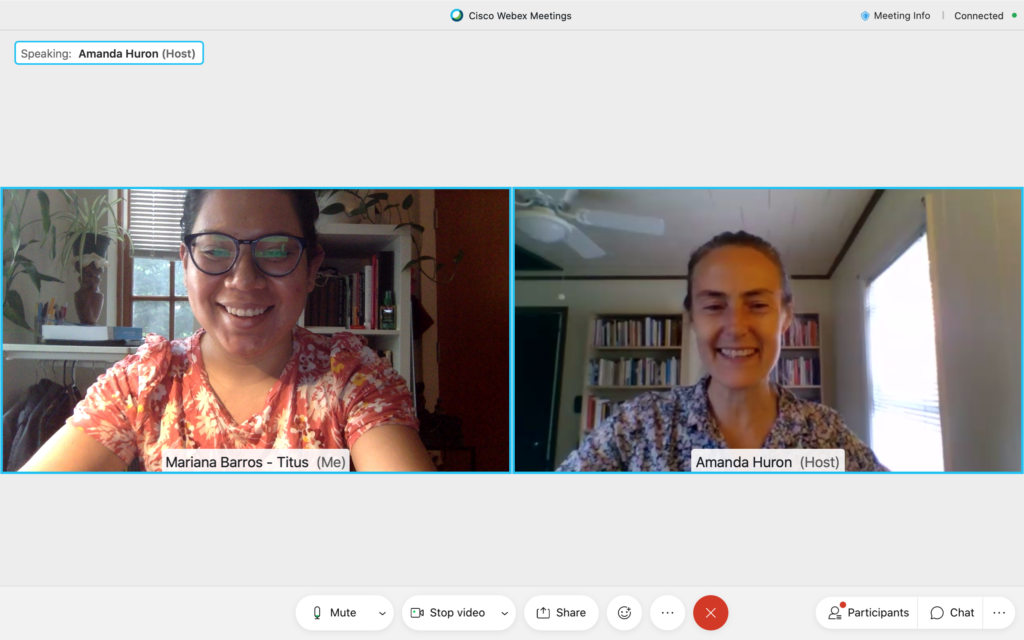Last summer, the DC History Center made a series of public collections commitments as we continue to examine how the organization, founded in 1894, has contributed over time to injustices that Black Americans and other people of color face every day. We have found that we need to change how we collect, describe, and provide access to the materials we hold in trust for the public.
The practice of ethical collecting requires understanding the landscape of potential collections and the needs of particular communities before presuming it is our responsibility alone to collect materials. At the same time, we are sensitive to significant gaps in our collections. So in February 2021, we launched a project to gather information about existing publicly available resources relating to DC’s Latino/a/x communities. This project was consciously designed as an information-gathering exercise, similar to previous efforts relating to the civil uprisings of 1968 and to the LGBTQ community, rather than a collecting initiative.
We’re pleased to announce that A Guide to Selected Research Materials Relating to the DC Latino/a/x Communities in Washington, DC, reflecting months of hard work by University of the District of Columbia student Mariana C. Barros-Titus, is now available through our website.

As a student, notes Mariana, “my research has been primarily focused on the structures that influence immigrant integration patterns, with a particular focus on political participation. My senior thesis, completed spring 2020, was focused on analyzing political participation in DC’s Latinx immigrant communities.” Mariana saw the gaps in the resources generally. “I became increasingly cognizant that the Latinx perspective was often excluded within political, social, and historical discourses. I often found myself asking “¿Dónde están los Latinos?” – where are the Latinos?”
Mariana continues, “In the text for one of my favorite classes, “DC History,” out of nearly 250 pages, there were a mere 2.5 pages dedicated to Latino History. This under-representation and/or under-appreciation of the Latino perspective was prevalent in many of my courses and this led me to want to pursue an independent research project that would aim to find and amplify Latinx history in the city of Washington.”
Mariana’s guide to Latino/a/x research is the result of her 16-week independent research project designed to answer her questions, and to help staff better help researchers. While we have published relevant new research in our magazine, Washington History, we know our library holdings are slim. So the guide significantly helps visitors to the DC History Center’s Kiplinger Research Library by listing records and collections across the city that reflect DC’s vibrant and diverse Latino/a/x community. This research tool will encourage new scholarship and amplify the community’s stories. However, while this guide aims to offer a robust selection of available resources, it is not exhaustive. And in fact, most materials remain in the hands of the Latino/a/x community rather than in archival repositories.

With invaluable guidance from Assistant Professor Amanda Huron, Mariana worked with Kimmi Ramnine, our research services librarian, and me, to craft a community engagement plan to gather the information. Mariana contacted professional library and archives colleagues to learn what they had cataloged. She also contacted researchers and scholars, who in turn introduced Mariana to members of the Latino/a/x community. We’re exceedingly grateful to all who helped, both those specifically named and those who preferred to remain unacknowledged.
Please visit this link to learn more about the process, the scope, the compilation of resources, proposed next steps, and to hear more directly from Mariana about why this project was both personally and professionally meaningful. We invite repositories and individuals to contribute additional information about publicly available resources. Please reach out to the DC History Center at library@dchistory.org if you have resources or thoughts to share.